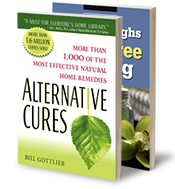 Several studies reported and published in the past few days give us new insights into the link between sleep and health–specifically, 1) sleep and weight…2) sleep and heart disease…and 3) the dangers of sleeping pills.
Several studies reported and published in the past few days give us new insights into the link between sleep and health–specifically, 1) sleep and weight…2) sleep and heart disease…and 3) the dangers of sleeping pills.
In the first study, scientists from the Mayo Clinic found that folks ate an average of 550 MORE CALORIES PER DAY when they were deprived of 80 minutes of sleep a night. That’s about 6 calories for every missed minute of snoozing! Eating that much more every day could translate into a weight gain of 1 pound a week, or 52 pounds per year. “Lack of sleep probably does contribute to weight gain and obesity,” one of the study researchers told the media. Why do people eat more when they sleep less? Well, the scientists didn’t find abnormal levels of the appetite-regulating hormones leptin and ghrelin. But I can tell you why I eat more when I sleep less: I chow down on more refined carbohydrates and sugar to provide extra pep…and I munch mindlessly, because my discrimination and willpower are just as worn out as my sleep-deprived body.
In another study, researchers at the Chicago Medical School found that folks getting less than six hours sleep a night were twice as likely to have a heart attack…twice as likely to have a stroke…and 67% more likely to develop congestive heart failure from a weakend heart muscle. But folks who slept more than eight hours a night were also at risk for heart problems: they were twice as likely to suffer the chest pains of angina; and 19% more likely to be diagnosed with heart disease. Bottom line: the “sweet spot” for sleep seems to be six to eight hours. And this isn’t the first study to link sleep and heart health: a massive investigation into more than 140,000 people linked poor sleep on three or more nights a week to heart disease, stroke and diabetes and overweight. Why does too little sleep trouble the heart? Researchers speculate that snoozing less than six or more than eight activates all kinds of biochemical barriers to heart health: too high levels of stress hormones…a hyperactive central nervous system…higher blood pressure…and poor blood sugar control.
Sleeping Pills Aren’t The Solution
Time to visit your doc for some sleeping pills, right? Not so fast. Another new study, involving more than 10,000 people, shows that those who regularly take drugs for better sleep are four times more likely to die than folks who don’t. And you don’t have to take a lot of pills to increase risk: taking one pill every three weeks or so was linked to 3.6 times the risk of dying! The types of pills implicated: Ambien, Lunesta, and Sonata (non-benzodiazepines), sedative antihistamines, benzodiazepines, and barbituates. Plus, people who took a sleeping pill about every three days or so had a 35% increased risk of cancer.
Natural Solutions That Work
These studies are important because sleeping problems are incredibly common. Twenty percent of Americans sleep less than 6 hours…45 million Americans meet the official definition of insomnia (having trouble falling asleep or staying asleep, or waking up too early, at least three times a month, for more than a month)…and another 60 million Americans have the same symptoms, but less often. In other words, there’s a lot of tossing and turning going on! But the natural-minded doctors and other healers I regularly talk to say there are plenty of non-drug ways to address the problem. Some of those that have proven most useful to my clients in my health coaching practice:
- No caffeine after 4:00 pm
- Exercise earlier in the day–at the latest, right after dinner.
- Have a high-protein snack at bedtime, to keep blood sugar normal during the night. A slice of turkey, a hard-boiled egg, or a chunk of cheese or soy cheese.
- Stop drinking fluids an hour or two before bedtime. (Also, prop up your feet on a pillow before bedtime, which allows fluid to drain out of your legs and be urinated before you go to sleep.)
- Keep your bedroom cool. Ideal: the mid-sixties.
- Make a list of your problems. Worry and anxiety is a big cause of insomnia. My friend and co-author Jacob Teitelbaum, MD (www.endfatigue.com) has a simple strategy that helps him let go of worry, which we described in in our book, Real Cause, Real Cure (Rodale): “I create a page with three wide columns,” he told me. “I list my problems and projects in the left-hand column. In the middle column, I write what I plan to do soon about each problem and project. I consider those two columns to be what I leave in the hands of God or the Universe or Spirit. Every so often, I move an item from the ‘Spirit” column to the right-hand column, ‘my’ column–the one or two things that I want to work on, right now. I am constantly amazed at how the problems and projects in the ‘Spirit’ columns move forward (on their own) as quickly as the items in ‘my’ column. I also keep a list of everyday errands and put a star next to those that must get done soon. I do the other items on tha tlist if and when I feel like it. And I sleep very deeply every night.”
Hope this blog helps you saw some logs!
Yours for health and happiness!
Bill

Very useful information! Thanks for the advice to the editor!!!